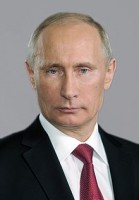
This post, written by Natasha Kieval, STAND Programs Intern, is the second in our blog series “Areas to Watch,” which covers developing conflicts. Read our first post about Turkey.
The international community has expressed increasing concerns about Russia’s human rights record. Russia’s continuous support for the Assad regime and transfer of heavy weapons has been criticized by both the US and other European countries. The Russian government’s incarceration of members of Pussy Riot, its assistance to Iran’s nuclear program, and its 2008 invasion and subsequent occupation of Georgia have also led to international criticism. Within Russia, human rights violations are also occurring. In 2012, Putin signed a law that forces NGOs to register as “foreign agents”. Most recently, the government announced that it will prohibit adoption by foreign countries that support same-sex marriage. Ongoing conflict exists in Dagestan and Chechnya, which have struggled to maintain a separate identity from Russia. Since 1999, between 3,000 and 5,000 people have “disappeared” from Chechnya. There have been reports of torture and abuse committed by the Russian government against Chechens.
Last week, the Senate Foreign Relations committee held a hearing entitled “A Dangerous Slide Backwards: Russia’s Deteriorating Human Rights Situation.” Frank Jannuzi from Amnesty International stated that “freedom is under assault” in Russia, referencing the outlaw of LGBT activism as well as a general stifling of anyone who criticizes Putin. Jannuzi emphasized that although this crackdown is more pronounced in certain regions, such as the North Caucasus, this is not just a crackdown on fringe groups, but rather a widespread suppression of Russian human rights. Leon Aron from the American Enterprise Institute spoke of the implications of this repression: a poor US/Russia relationship and an increase in Russia’s authoritarianism. Aron also stated that NGOs promote political processes and active political participation, and he suggested that the country will stagnate without them.
Addressing the issue of how the US should respond to this obvious crackdown on human rights, Stephen Sestanovich from the Council on Foreign Relations stated that the US should stay out of Russia’s political struggle, using the logic that it is not the role of the US to enforce democratic rule of law. However, according to Sestanovich, the US should emphasize the international norm that NGOs are not foreign agents and focus on the need for support for Russian NGOs by the Russian people themselves. Jannuzi urged the Senators to continue to shine a spotlight on this issue both domestically and internationally.
With Putin’s unwavering support of the Assad regime, crackdown on NGOs, and increasing authoritarianism, Russia is an important country to watch. To learn more about Russia’s human rights violations, check out Amnesty International’s timeline.
